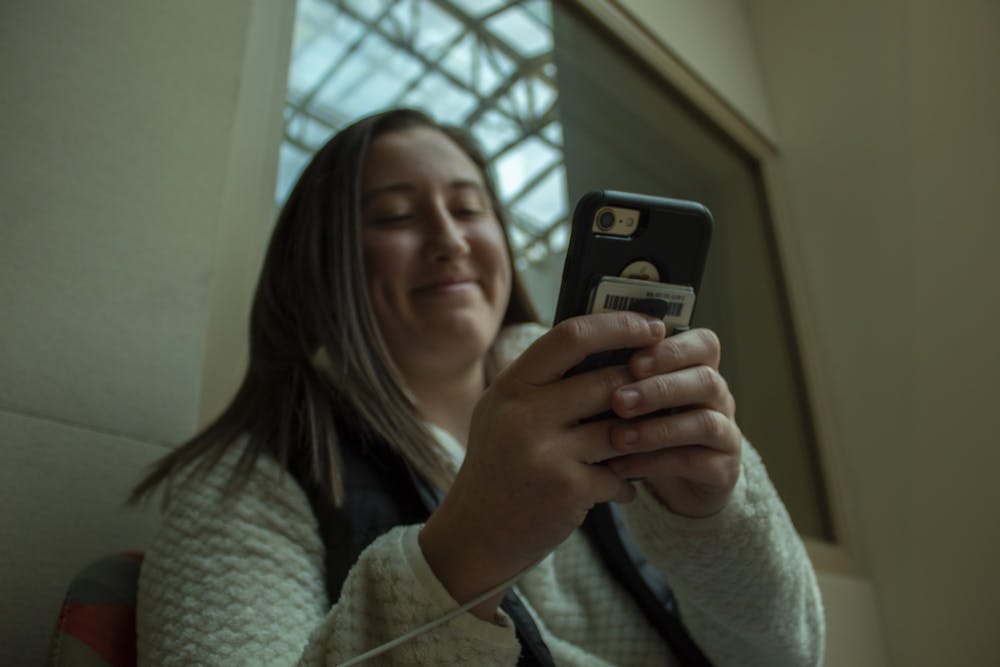Americans are on their phones constantly. We use our devices to tweet, check emails and keep in constant communication with our peers. A 2014 study found that college students spend eight to 10 hours a day looking at screens. You’re probably reading this off a screen right now.
It’s time for us all to take a step back from our device, even if only for a day.
This Friday is the National Day of Unplugging. The holiday is centered around realizing that our phones have become the centerpieces of our attention. The purpose of "unplugging" is to disconnect from our screens and connect with our surroundings.
Our phone screens can become the sole focus of our attention, to the detriment of other aspects of our lives, Catherine Price, the author of “How to Break Up with your Cell Phone,” told Vox in 2018. The time we spend on our phones takes away from the rest of our lives.
"I’m not spending time with my friends in real life. I’m not talking to my kid. I’m not paying attention to my partner. I’m not reading a book. I’m not doing all these things I enjoy," Price told the publication. "Then your phone goes from a source of pleasure to a distraction."
Research backs up Price’s point: Our screen addictions are not healthy.
A 2016 study of cell phone usage in Spain showed that excessive usage of cell phones can create physiological symptoms of addiction. The symptoms are similar to those of psychological dependence on cigarettes or alcohol, as described in the American Psychiatric Association’s diagnostic manual.
An experiment from 2018 even indicated that excessive cell phone usage decreases academic performance. Researchers tracked phone usage of Brazilian business students and found that every 100 minutes of screen time led to a 6% decrease in a student’s position in the school’s ranking system — a concerning prospect for many college students.
San Diego State University researchers found in 2017 that more screen time is associated with decreased sleep quality.
This body of research consistently suggests that increased cell phone usage reduces the quality of our lives in a myriad of ways.
Of course, I’m no saint when it comes to my own screen time. A quick look at my iPhone's screen time report shows I've averaged more than four hours of screen time per day this past week, and I frequently pull up Twitter when writer’s block is in full effect. But I’ve seen firsthand how a technology cleanse can benefit you for the better.
This past summer I conducted my own “month of unplugging,” so to speak. I deleted almost every app from my phone. No Twitter, Instagram or games to distract me.
This isn’t quite a complete unplugging. As an intern in New York, I didn’t feel comfortable foregoing my phone entirely. But I saw the benefits by limited usage.
It wasn’t easy at first. The temptation to check my phone during every idle moment was powerful. But eventually the urge subsided, and I could live more presently in the moment. I found myself rediscovering my love of reading and spending more time outside, and it was easier to focus my attention when working.
My month of unplugging is now firmly in the rearview mirror, and I’m as back on my social media grind as ever — and only in part to look at replies to my columns.
But this Friday represents an opportunity to think critically about your own phone habits. If you, like me, spend more time on your phone than you like, take some time off.
Put down that damn phone, even if it's just for a day. There’s much more to live for beyond your phone screen.
Christian Sayers (he/him) is a senior studying mathematics and economics. He hopes to someday own a large rabbit.






